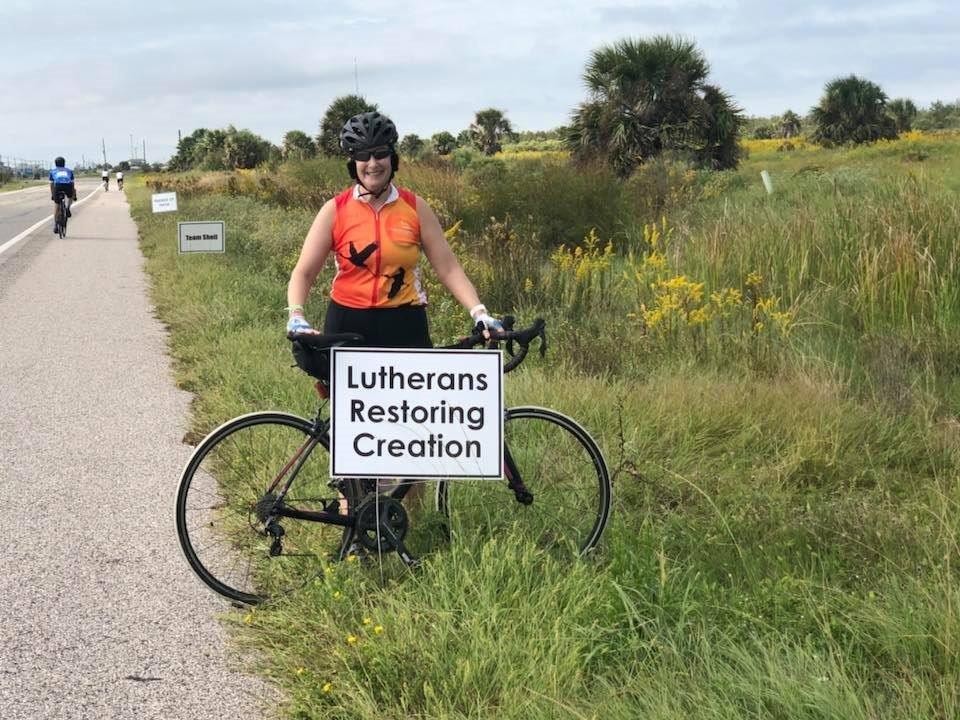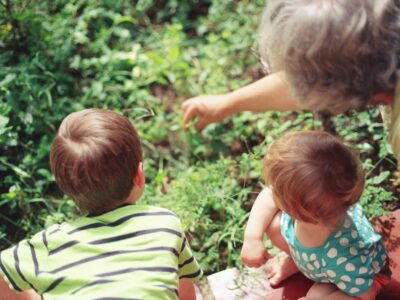The effects of a changing climate impact communities differently depending on its particular landscape. In cities and towns across Louisiana and Texas, climate change means hotter temperatures and increased flooding. These changes to our environment not only affect the health of our planet for future generations, they are impacting people’s health today. Lutherans in the region have taken up these issues and others to help protect and restore creation.
Lutherans Restoring Creation
For decades, the Texas-Louisiana Gulf Coast Synod Evangelical Lutheran Church of America (ELCA) has made creation care a priority. Beginning in 2010 the ELCA invited synods to join a more focused initiative, called Lutherans Restoring Creation. The Gulf Coast Synod bishop was an early adopter of what ultimately began as a grassroots effort to introduce theology into the climate conversation and to start living out those beliefs in local churches everywhere. Lutherans Restoring Creation is a nationwide effort to help parishes incorporate creation care into the center of all aspects of our lives and ministries.
Lisa Brenskelle coordinates the Texas-Louisiana Gulf Coast Synod’s creation care programming and resource offerings, which parishes in the region can leverage for their own activities. Many of the programs are offered online, so individuals from communities around the nation and globe have the opportunity to join into sessions that are of interest.
Lutherans Restoring Creation has five different areas of focus: worship, education, discipleship, building and grounds, and public ministry and advocacy. Brenskelle incorporates a sixth area in the Gulf Coast program: the experience of being out in nature. Each month, Brenskelle distributes a newsletter to the Synod and includes a section of content for each area of focus. The newsletter includes practical tools to help congregations incorporate creation care into worship, participate in area hands-on stewardship events, make changes to their facilities that are environmentally friendly, and join in efforts for creation care advocacy.
Knowledge and Faith into Action
Much of the programming done by the Gulf Coast Synod Lutherans Restoring Creation revolves around education. Brenskelle says, “You can’t care for creation if you don’t know anything about it.” They offer a monthly environmental education lecture series online as well as various studies that can be joined in-person or online. Recently, a professor from the University of Washington presented a lecture on what humanity must do to save civilization. Sometimes sessions are exclusively science-based, sometimes focused exclusively on the theology of creation care, and sometimes both topics together. In addition to these sessions, participants can join book discussion groups, retreats, and classes that are offered on an ongoing basis and promoted on the Gulf Coast Synod Lutherans Restoring Creation Facebook page.
As James wrote in his letter to the church, it is impossible to separate faith from action, and discipleship for Lutherans Restoring Creation is ultimately about putting our knowledge about science and theology into practice. Each month, Lutherans Restoring Creation promotes hands-on stewardship activities, like beach clean-ups and park beautification. They also form a People’s Eco-Challenge team in April, July, and October each year. The People’s Eco-Challenge invites Houstonians of all faiths to take on a challenge in: justice for the whole community, healing & renewal, waste, food, health, transportation, energy, community, nature, water, or simplicity.
Each fall and spring, Brenskelle offers a discipleship class called “Living the Change,” which presents personal lifestyle changes you can do to reduce your household carbon footprint. They’ve also participated in bike rides that benefit the natural world, like the Tour de Houston, which benefits reforestation efforts in the city.
Experiencing Nature
Brenskelle added the sixth area of focus—the Experience of Being Out in Nature—to the Gulf Coast Lutherans Restoring Creation for individuals to bring the creation care effort full circle. Experiencing nature broadens our sense of mystery and connection to creation and to our Creator. Brenskelle coordinates outings in the fall and spring during which she teaches nature-based Christian spiritual disciplines. They’ve taken tours of the Houston Botanical Gardens and led night hikes at the nature center as well… anything to expose more individuals to the wonder and awe of creation, which inspires awareness, appreciation, and action.
Gulf Coast Environmental Concerns: Extreme Heat and Floods
It can be easy to push away the global concerns of climate change when it doesn’t seem as if the subject affects your local environment. However, climate change and creation care walk hand-in-hand in every community around the globe. For the Gulf Coast, extreme heat and flooding are major environmental concerns that affect everyone’s day-to-day life and the region’s future.
Although there are several large lakes that supply water to area residents, the Houston area still gets 12% of its water from underneath the ground. “When you extract water from the ground, the land sinks (called subsidence),” Brenskelle explained. “When the land sinks, more of the city is prone to flooding. This is why water conservation is really important.” Lutherans Restoring Creation participates in an annual rain barrel distribution in the Galveston and Houston area in addition to ongoing water conservation education and advocacy. Rain barrels and rain capture in general reduces runoff.
As climate change impacts the global temperature, the Gulf Coast Synod Lutherans Restoring Creation team is also working to educate the community about climate change’s impact on heat levels. Last year, they offered a lecture series in August called “Climate Change 360,” which looked at climate change from every possible angle: science, health impacts, impacts on natural disaster, and solutions to the problem.
“Heat waves kill more people every year than any other natural disasters, and they are going to kill more and more people,” Brenskelle said. “People need to know about that.”
Creation Care Is Foundational to Our Faith
For most of human history, there has been no real need to remember our calling from God to care for creation, but in recent decades as industrialization and urbanization have increased, it has become easy to sideline our first job. Brenskelle wants to remind Christians how fundamental creation care is to our theology.
“It is the answer to what is the meaning and purpose of human life on this planet. We were placed here to care for it. It is humanity’s role to care for the Earth,” Brenskelle said. “This is foundational theology – this speaks to why humanity exists. This is not some sidebar you can do if you feel like it. It’s foundational theology for the Christian faith.”
If you’d like more information about the Gulf Coast Synod Lutherans Restoring Creation, email gcs.lrc@gmail.com to join the distribution list or follow along on Facebook for upcoming events.





 Copyright
2024
Root and Vine
Copyright
2024
Root and Vine